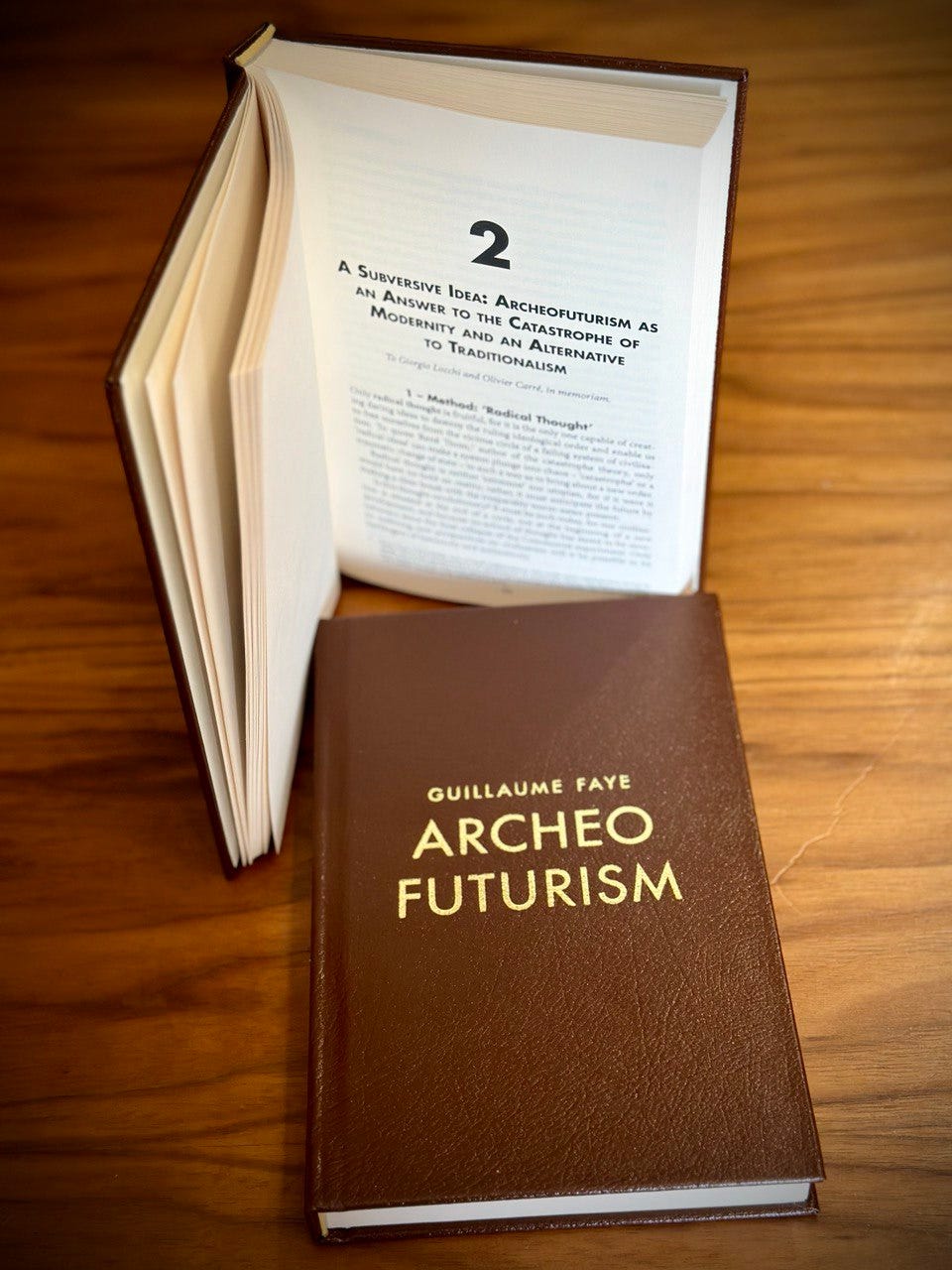The bullet-train stopped for three minutes. It then departed again in the direction of Lake Baikal. The screen said, ‘13,000 kilometres per hour. We are reducing our delay to two minutes.’
Nafissa went on, ‘Why did the United States not intervene as they seem to have done with other invasions in the past, such as when they freed Europe from those merciless German dictators?’ The Indian girl had a naive attitude. The Russian councillor smiled and answered in a professorial tone, ‘The reason is very simple: the United States no longer had any means at its disposal. And besides, it had no wish to free Europe from the Islamic yoke. It had other things to worry about! Following the huge global economic crisis I mentioned, the United States imploded. It had been the leading world economic power, but its unity was only based on widespread economic wealth and financial investments. From 2020, people in the United States started fleeing from the cities, as was happening in Europe, but for other reasons: the increasingly impotent federal state disintegrated, the economy came to a halt and famines and epidemics broke out, as well as ethnic conflicts — such as the terrible clash that took place between Hispanics, Blacks and Asians in October 2020 in Los Angeles.
The same scenario occurred as in Europe: 35% of the population disappeared, as states proclaimed their independence and withdrew into themselves. Blacks regrouped in the South and Whites fled the areas in which they were a minority. A new ethnic map was drawn in this vast area. Only two regions managed to keep their industries and economies running, if only at 20% of their former capacity: the American Republic of the Pacific, situated on the coast between San Francisco and Vancouver, and which became a sort of Sino-Japanese protectorate (and remains such to this day), and the Old American State (OAS), which stretched from Michigan to New England and included southeastern Canada, with Chicago as its capital…’
‘And what about New York, this legendary ancient city?’ ‘All that remains of it today are huge ruins that can be visited…’ ‘I know,’ the Indian girl replied. ‘My father, like all high-ranking officers in our Empire, received an advertisement on his video-programme that said: “Don’t miss the fantastic view of New York’s ruins.” It was an offer from the Indian Tourist System to get a view of the remains of the city from an airship.’
‘I see… Right from the onset of the economic crisis, New York turned into a living hell. With the rise of the sea level, at each great tide it was devastated by floods. Riots, fires and famine did the rest. New York lost all its population in a very short time. As you know, there is no such thing as a “short-acting catastrophe”. Catastrophe theory speaks of a “final acceleration”. This is the famous law of 80-20: 20% of a system will collapse in 80 units of time and the remaining 80% will collapse in 20. New York, a symbol of modernity worldwide, could not survive its brutal end. I should add that Los Angeles, as you know, met the same fate as New York…’
‘Yes, I’m aware of this. But apparently the ruins of Los Angeles are far less striking when seen from an airship.’
‘Well, that’s because they were mostly knocked down by a huge earthquake in 2043. There were hardly any victims, though: the area had already been abandoned.’
Dimitri’s computer made a beeping sound. He typed ‘18’ on his keyboard, to enable the flow of information. Suddenly, Vega showed up on the screen. She had changed her dress and was now wearing an ancient Greek peplum.1 In the background, a Greek pipe was playing a languid song from the 1970s, ‘Millisé mou hos agape mou’2 — an incessant, ternary motif from ancient Thessaly.
Nafissa broke out in a laugh. ‘You certainly did a good job in designing your virtual secretary! It really matches your fantasies, Mr. Councillor! I hope your wife doesn’t know about her…’ Dimitri mumbled, ‘Of course not. This super-powerful quantic computer is for high-ranking officials only. Surely someone my age has the right to a little fun? … What’s going on, Vega?’
‘Master, the Supreme Inter-State Court of St. Petersburg wishes to inform you that the Kingdom of Albania is asking for a two-year delay in the repayment of the debt it contracted with the Federal Bank and the Republic of Kamchatka in 2070. They are anxiously awaiting your verdict.’
Dimitri typed on his laptop, ‘Grant them a 16-month delay — no more than that. If the Albanians don’t accept these terms, the Federation will consider revoking its funding for the wide canal between Tirana and Sofia. I’m fed up with these good-for-nothings.’ The computer remained silent for a moment. Then there was a hiss.
Vega’s image remained motionless before coming to life again.
‘Should I write “good-for-nothings” in my answer to the Court, Master?’
‘No. Delete the last sentence and rewrite the whole thing in administrative jargon.’
Dimitri typed ‘81’ and the image of his virtual secretary disappeared.
The Indian girl had witnessed the whole scene.
‘You make decisions fast…’
Dimitri felt flattered and answered, shrugging his shoulders. ‘I have to. The Federation includes 125 autonomous states, each of which has its own egoistical demands. The rule of general consensus can no longer be applied, as it was in the twentieth century. Decisions must be made, in the name of the Imperial Government and the common interest.’
‘What if a state does not agree with your decisions?’ ‘It can hold a referendum and leave the Federation. This is what happened with the tiny state of Corsica, with Euzkadi or “Basque Country”, with Sicily, Estonia and others, too. Some of these have now made their way back into the Federation, while others are begging us to accept them. This is quite natural, as they no longer benefit from our federal solidarity and military protection.’
‘We’ve faced exactly the same difficulties in the Indian Empire. Nepal first left the Union but then joined it again out of fear of China…’
‘With the states of Brittany, Bavaria, Flanders, the Île-de-France and Sweden, we’ve had the opposite problem: they are highly dynamic and are trying to get their hands on everything. They make their presence felt in all the ministries and commissions. The worst of all are the Bretons. They’re everywhere. They would make you believe it’s they who are governing the Empire. Not that this is far from the truth… The current President of the Imperial Government, our head of state, is a Breton.’
Nafissa stared at Dimitri in amazement. He added, ‘Well, despite superficial disagreements, there is an understanding between us, as we’ve all realised that we’re part of the same folk — although there are over 20,000 kilometres between us. Disputes about selfish economic interests are part of life. What ultimately matters is agreeing about the important issues.’
‘And what are the “important issues”, then?’ Nafissa asked in a mischievous voice.
‘Identifying our common enemies — and our common friends.’ ‘Oh, I see. I pretty much agree with you.’
The girl then changed the subject. ‘You were saying that the “Reconquista” which took place between 2025 and 2028 was a very brutal one… Would you tell me more about it?’
Purchase the limited collector’s edition of Guillaume Faye’s Archeofuturism now:
US customers
European customers
Now with a flat shipping rate of $7.50, both for US and European customers!

A peplum was a body-length women’s garment.
‘Tell Me That You Love Me’.








